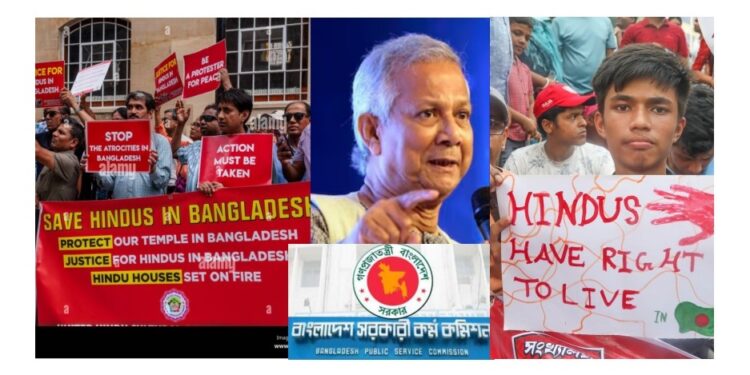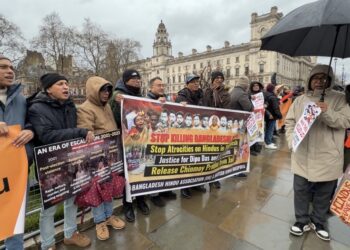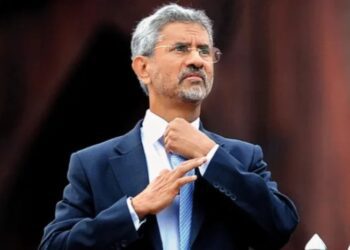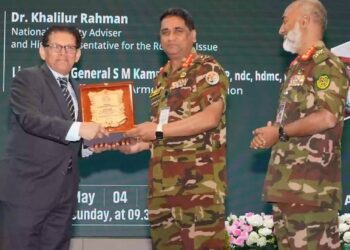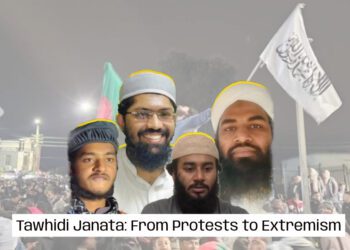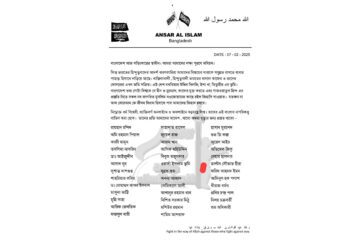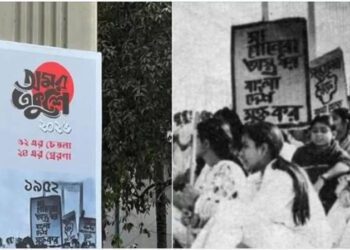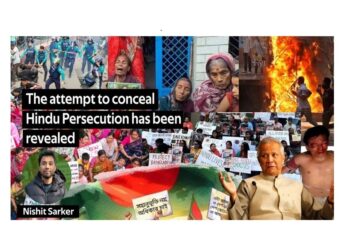Marginalization of Minorities: Hindu Candidates Face High Rejection Rates in Bangladesh’s Latest BCS Examination.
The issue highlighted in the BCS Gazette Updates for October 2024 and December 2024 reveals a concerning trend regarding the treatment of Hindu candidates in Bangladesh’s public service recruitment process, particularly within the Bangladesh Civil Service (BCS) examination.
Key Points from the October 2024 Gazette:
- Total Successful Candidates: 2,068.
- Breakdown of Candidates by Religion and Ethnicity:
- Hindu Cadre: 262 candidates (12.66% of total successful candidates).
- Other minority groups (Bengali Buddhists, Christians, Tribal Buddhists, Chakmas): 11 candidates.
- Muslims make up the vast majority, though specific percentages are not detailed in the October Gazette.
Analysis of December 2024 Revised Gazette:
- Total Successful Candidates: 1,896, showing a reduction of 172 candidates.
- The revised list includes 1,695 Muslims (89.39% of the total cadre).
- Hindu Cadre: Only 190 Hindu candidates (10.23% of the total cadre).
- Other Minorities (including Bengali Buddhists, Tribals, and Christians): 11 candidates (0.58% of the total cadre).
Discriminatory Trends:
- Exclusion of Hindu Candidates: The Hindu cadre was significantly reduced from 262 to 190. Out of the 262 Hindu candidates, 72 were excluded (a rejection rate of 27.48%). In contrast, Muslims, who comprise 86.79% of the successful candidates, had a much lower rejection rate of 5.79%.
- Systematic Exclusion of Hindus: The fact that 27.48% of Hindu candidates were rejected suggests a discriminatory trend. Despite Hindus representing 8% of Bangladesh’s population, their proportion in the BCS exam success rate is 12.66% in the October 2024 gazette, which is more than their demographic representation. However, the rejection rate they faced was disproportionately high, which many see as a deliberate attempt to marginalize them.
Impact on Minority Representation:
- The representation of minorities has notably decreased in the December 2024 revised gazette, with Hindus making up only 10.23% of the total successful candidates after the reductions.
- The exclusion disproportionately impacts the Hindu community, despite their strong performance in the BCS exam, as well as the presence of other minorities such as Buddhists, Christians, and Tribal groups who also face systemic challenges.
Criticism and Concerns:
- Critics argue that the significant rejection rate of Hindu candidates in the revised gazette reflects state-sanctioned discrimination, designed to weaken the representation of religious minorities in public service.
- Hindus, despite being one of the larger minority communities in Bangladesh, face marginalization within state institutions, which many view as a form of communal bias or systemic exclusion.
The reduction in Hindu representation and the higher rejection rate of Hindu candidates compared to Muslims raises significant concerns regarding the treatment of minorities in Bangladesh, specifically Hindus. This development has sparked accusations of discrimination and marginalization within the public service recruitment process, potentially undermining the principles of equity and fairness in government employment practices. Critics claim this reflects a broader systematic bias that continues to affect Hindus and other minority groups in Bangladesh.

